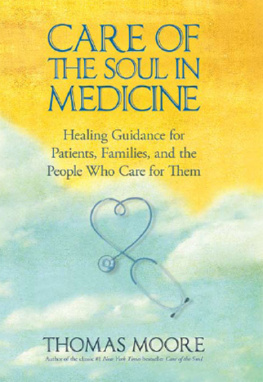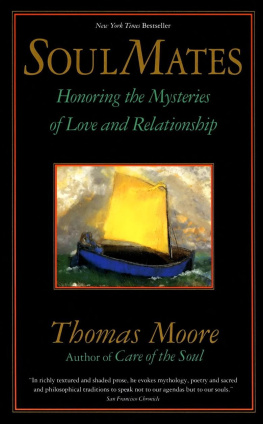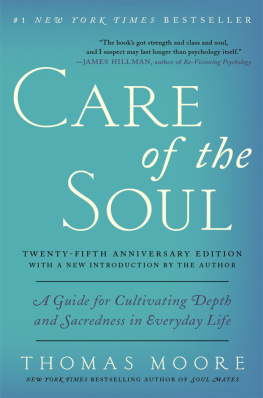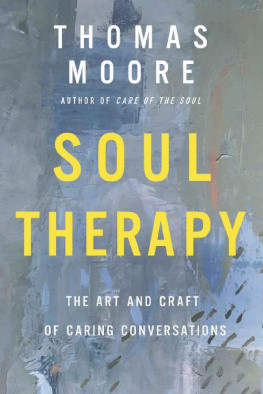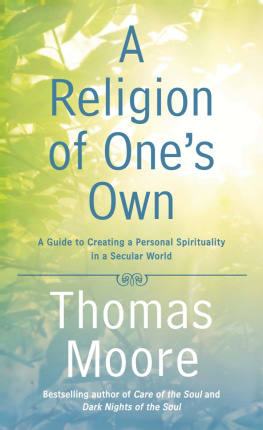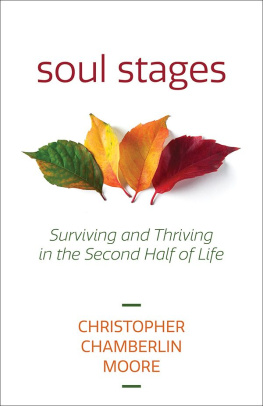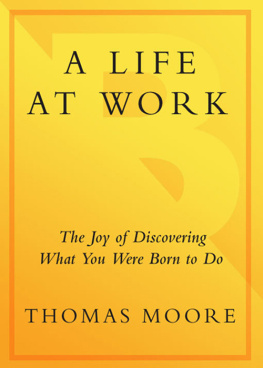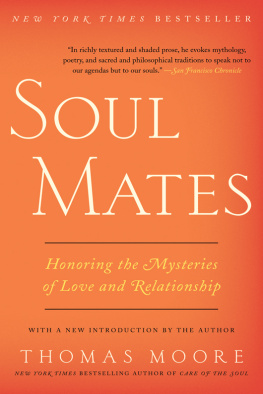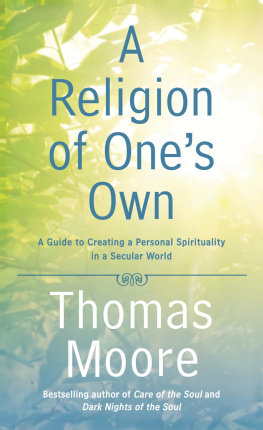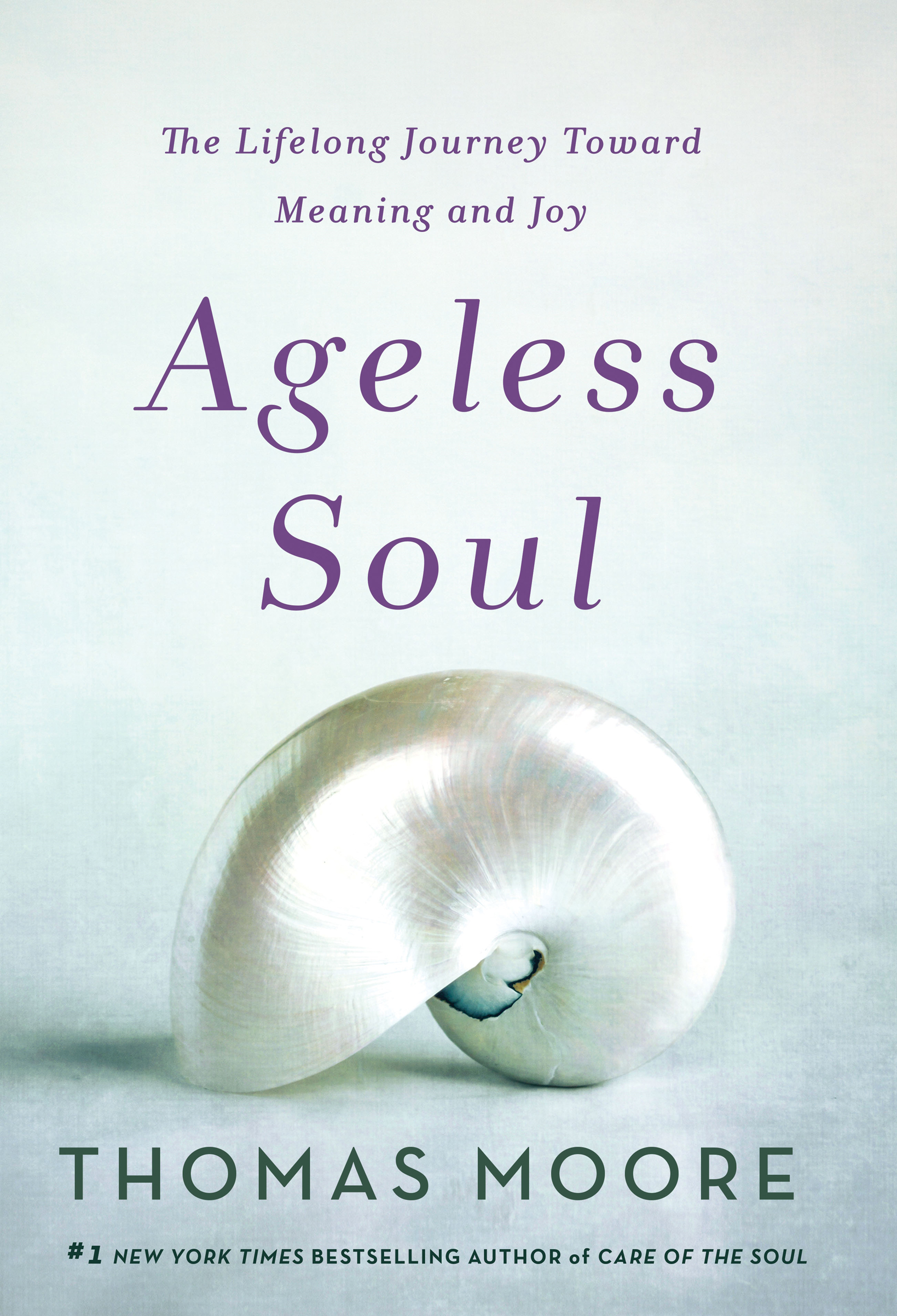Contents
Guide
Pagebreaks of the print version

The author and publisher have provided this e-book to you for your personal use only. You may not make this e-book publicly available in any way. Copyright infringement is against the law. If you believe the copy of this e-book you are reading infringes on the authors copyright, please notify the publisher at: us.macmillanusa.com/piracy.
To James Hillman, buddy (his word) and guide
While writing a book I keep my ears open to all useful ideas, even the slightest, that come up when Im with friends, colleagues, and family members. They usually dont realize that Ive just filed a mental index card when they said something stimulating. I am grateful beyond words to the following people. They fed me generously when I needed a fresh thought and a new direction. My friends: Robert Sim, Patrice Pinette, Gary Pinette, Carol Renwick, Hugh Renwick, Judith Jackson, Joel Laski, John Van Ness, Liz Thomas, Pat Toomay, and Mike Barringer. My colleagues (also friends): Todd Shuster, Denise Barack, Nancy Slonim Aronie, George Nickelsburg, and Hugh Van Dusen. New acquaintances: Burt Bacharach, Kristan Altimus, and Carl Shuster. The loves of my life: Ajeet and Abe. My soul-partner: Hari Kirin. Im also profoundly grateful to George Witte and Sally Richardson at St. Martins Press.
In a lovely quiet section of a large American city, a young architecture student was preparing a Zen garden for a new season after a long winter. As he worked, an old monk sat on a bench across the road watching him. The young man raked up the leaves that had covered the ground and spruced up plantings and bushes. He gathered the leaves into a large tarp and tied it up and pulled it far off to the side.
He looked over toward the monk, whom he knew was a well-known teacher of Japanese garden design. The monk stood up.
A very nice garden, the monk said.
Yes, the student responded. So you approve?
One thing is missing, the monk said. The student helped the aged monk walk over into the garden. The old man went right up to the tarp, pulled on the rope, and let the leaves pour into the garden and blow in the wind. Then he looked at the newly disheveled space and smiled.
Beautiful! he said.
Wabi-Sabi is the Japanese aesthetic in which imperfection, age, brokenness, and a run-down appearance are considered beautiful. This is not strange to the modern eye, which also appreciates furniture that has dents, scratches, and layers of fading paint. A weathered barn isnt entirely unlike a person who has had a full life, and Wabi-Sabi is a good place to begin discussing the two basic aspects of a human being: the passing of time and ageless mysteries.
We, too, may develop dents and scratches, and we, too, may be beautiful nevertheless. As we go through both the satisfying and the unsettling experiences of our unfolding lives, it helps to keep in mind a simple phrase: the beauty of imperfection. Age offers good things and bad things. And so we need to appreciate the value of an imperfect life.
A Zen master might say: Aging happens. Our task is to be there for the aging, no matter how it shows itself, rather than fight it. Fighting anything makes it into an enemy and then it looks worse than it is. Keep working against aging, and before long you will have lost the battle.
The secret to aging is to face the loss of youthful beauty and strength, and from there use all the resources we have to be creative, positive, and optimistic. Whenever I use the word optimism, I think of the Roman goddess Ops and the abundance she gives to humankind. She was the sister and wife of Saturn, the very archetype of old age. Abundance herself, Ops is there to make our aging wealthy and pleasurable in the deepest ways.
As a psychotherapist, I can help people best by encouraging them to be where they are. I dont mean accepting a bad situation that needs correcting, like an abusive marriage, and Im not talking about surrender or resignation. But if a person fights his situation without knowing what its all about, he is bound to lose in the end.
For example, I worked with a woman who kept saying she wanted out of her marriage, which she felt was intolerable. But year after year she did nothing about it. She told me how friends and family members tried to convince her to leave, which only kept her frozen in place. I felt she needed to really be in the situation before she could leave it. I made a point not to speak in favor of ending the marriage, but rather to help her know where she was. Eventually, she stopped complaining and evading and simply got a divorce. Later she told me how happy she was with her decision, and she thanked me for helping her. Yet all I did was accompany her in her long and painful decision making, as though I were breathing in sync with her every breath.
Its similar with getting older. If you fight it and complain about its downside, you may be miserable for the rest of your life, because aging is one thing that doesnt get better. If you can be with it now, then you will be equally at peace when youre five years older. If you can just be with what is, you have a good starting point and a base. Then you can do other things to improve your situation. Dont get lost longing for a past golden age, and dont yearn for a different future. Let the leaves spill out over your ideals, and then see the full beauty of your life.
In all my work, following a long line of teachers, I look for the deep stories, the mythologies, and the eternal, archetypal themes that lie beneath the surface of ordinary experiences. We are not people simply dominated by time with its unwanted effects. We are ageless people, too, participating in a mysterious and wonderful process in which our eternal, unchanging selvesI prefer to call it our soulbecome more visible over time. This is the key sign that you are aging and not merely spending timegradually you discover your original self, your own pristine way of being.
Aging is an activity. It is something you do, not something that happens. When you ageactive verbyou are proactive. If you really age, you become a better person. If you simply grow old, passively, you get worse. Chances are, you will be unhappy as you continue the fruitless fight against time.
We tend to see time as a line that inevitably moves along monotonously like a conveyor belt in a factory. But life isnt so mechanical. Ralph Waldo Emerson once wrote a simple line that could change the way you look at aging:
The souls advances are not made by gradation, such as can be represented by motion in a straight line, but rather by ascension of state, such as can be represented by metamorphosis,from the egg to the worm, from the worm to the fly.
Ascension of state. I imagine this ascension as a series of plateaus, initiations, and passages. Life is not a straight line but an array of steps moving from one level to the next, each level possibly lasting years. Often the ascension to a new level will be inspired by an extraordinary event, like a sickness, the ending of a relationship, the loss of a job, or a change of place.
Notice that Emerson could be speaking of a butterfly emerging from its worm state, a theme in the ancient Greeks use of the word psyche for both soul and butterfly . We start out small and not too pretty, and we emerge in our older years with the beauty and wings of a butterfly.
By ascension of state, I think Emerson means that we go through a series of phases or plateaus. When I look at my growth over the years, I focus on special events: leaving home for religious boarding school, ending my experiment with monastic life, being fired from a university position, marriage, divorce, the birth of my daughter, success with books, surgeries. These events mark the steps, but each one occupied a long period in which I grew up and aged. My soul emerged over several distinct, well-defined periods.


